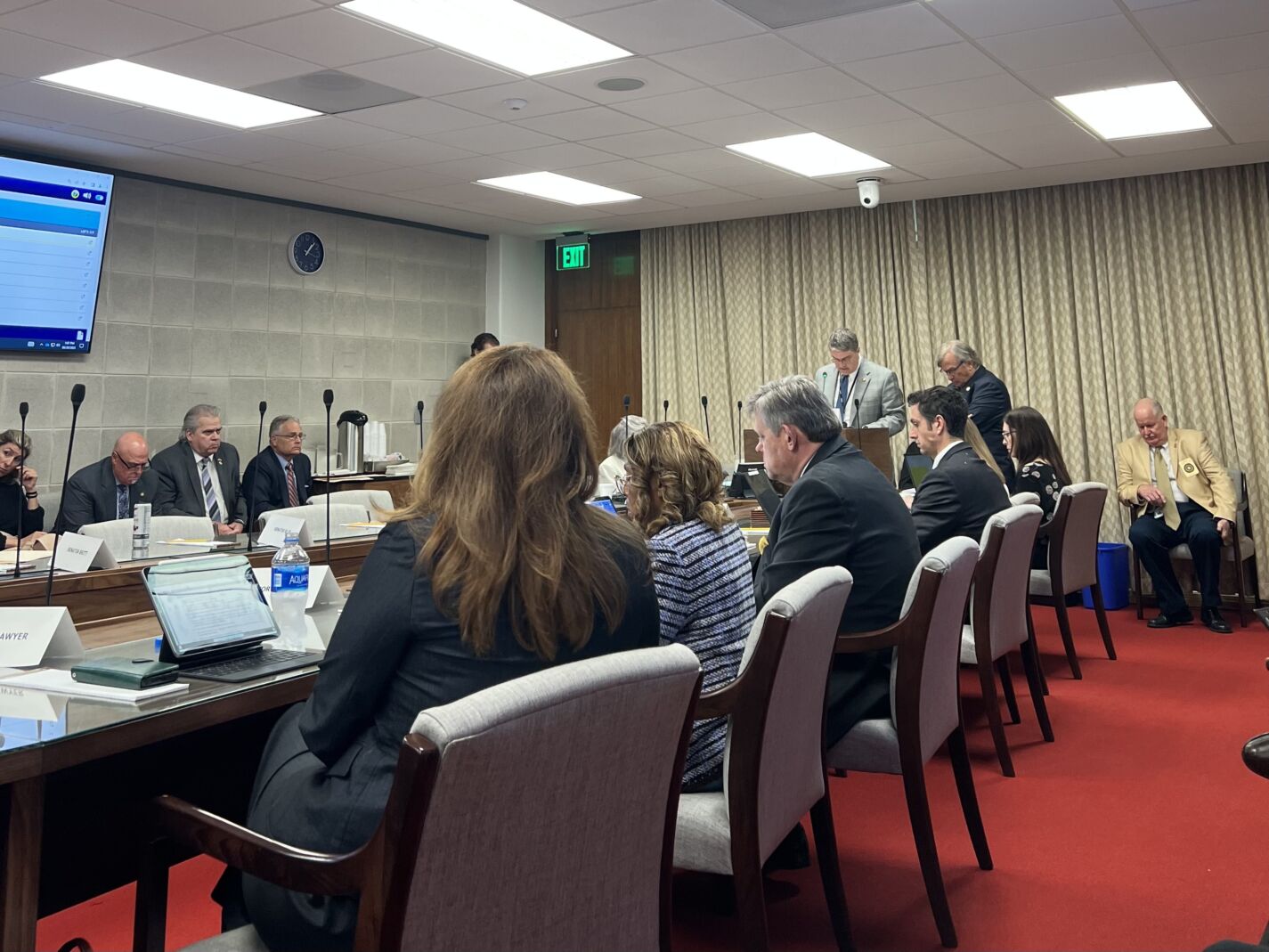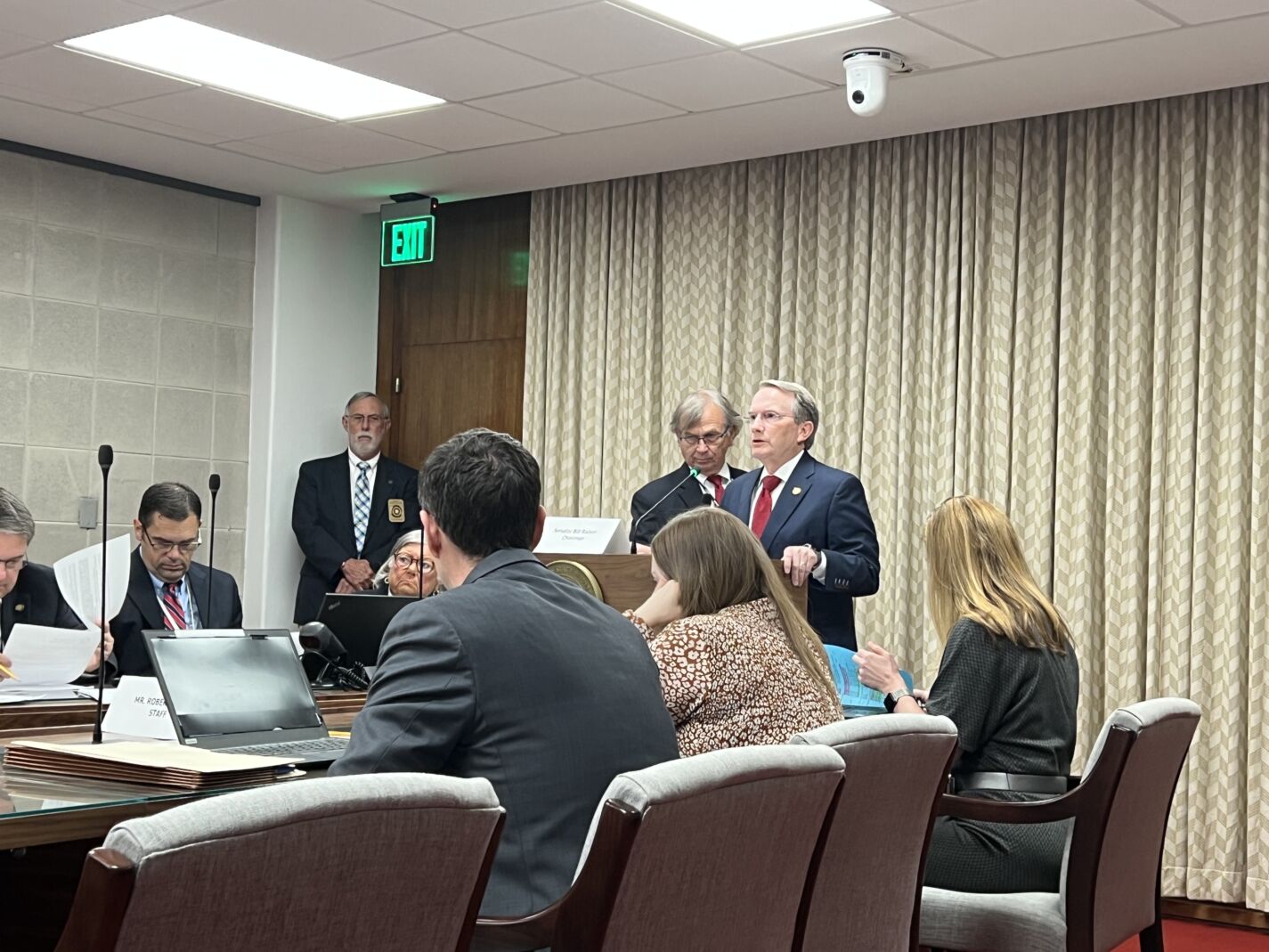On Tuesday, the Senate Rules Committee passed two bills—Senate Bills 747 and 749—that would significantly impact elections in North Carolina.
Senate Bill 747, “Election Law Changes,” would end North Carolina’s three-day grace period for absentee ballots arriving after Election Day, and counties would be banned from taking so-called “Zuck bucks,” amongst other changes.
Senate Bill 749, “No Partisan Advantage in Elections,” restructures the North Carolina State Board of Elections by splitting the appointments between the majority and minority legislative leaders. Additionally, county boards of elections would be appointed in the same manner.
Sen. Warren Daniel, R-Burke, presented S.B. 747 to the committee. After Daniel was finished presenting, no committee members had any questions on the bill.
Two members of the public spoke on the bill, both requesting modifications to sections of the bill. The first speaker requested more definitive language surrounding poll observers, and the second had concerns about preserving records of illegal immigrants.

When the vote was called for S.B. 747, the Rules Committee approved the bill and no Democrats voiced a vote against the bill.
Sen. Paul Newton, R-Cabarrus, presented S.B. 749 to the Rules Committee. There were no questions from the committee or the public, and the bill was approved quickly, again, without voice opposition from Democrats.
Senate Bill 747: “Election Law Changes”
In addition to banning private money in elections and getting rid of the three-day grace period for absentee ballots, S.B. 747 would do the following:
- Require local Superior Court clerks to notify state election officials of names of people disqualified from jury duty because they are not citizens.
- Permit public inspection of absentee ballots at weekly county elections board meetings.
- Extend to 22 months the time elections records must be retained and preserved, matching existing federal requirements.
- Require precinct officials to log names of people assisting voters.
- Require provisional ballots from any prospective voter taking advantage of same-day registration.
- Require a new two-factor authentication process for absentee ballots cast by mail.
- Require signature verification software to check signatures of voters using absentee ballots.
Bill sponsors cited John Locke Foundation polling that showed “low voter confidence” in elections. “In 2021, a Cygnal poll found that only 49% of North Carolinians believed the 2022 elections would be ‘free and fair,’” sponsors said in a press release. “The legislature passed multiple bills addressing those issues. Gov. Roy Cooper vetoed those commonsense bills. More recent polling by Cygnal shows that only 50% of North Carolinians believe our elections will be free and fair, a clear confirmation that voter confidence has not improved.”
Senate Bill 749: “No Partisan Advantage in Elections”
If S.B. 749 passes, all appointments to the State Board of Elections (NCSBE) would come from the legislature, with the following allocation:
- Two members appointed by the president pro tempore of the Senate.
- Two members appointed by the speaker of the House of Representatives.
- Two members appointed by the minority leader of the Senate.
- Two members appointed by the minority leader of the House of Representatives.
Local election boards would be appointed in a similar fashion, but with only one appointment per legislative leader instead of two. Local boards would only consist of four members as opposed to eight.

Currently, three out of five members of the NCSBE are allowed to be from the same political party, allowing partisan decisions to be made.
Additionally, all appointments are currently made by the governor.
For local boards, the NCSBE “appoints four members – two Democrats and two Republicans – to each county board of elections,” according to the NCSBE website. “The state chairs of the Republican and Democratic parties recommend three registered voters to the State Board.”
The NCSBE chooses two of the three recommendations by party chairs, and the governor chooses the fifth and final appointee, which will be the deciding vote on partisan issues.
Under the current law, when North Carolina has a Democratic governor, Democrats have the ability to exert control over all boards of elections, including local boards in Republican counties.
Similarly, when the governor of North Carolina is a Republican, Republicans have the authority to control all boards of elections, even in counties that predominantly lean Democratic.